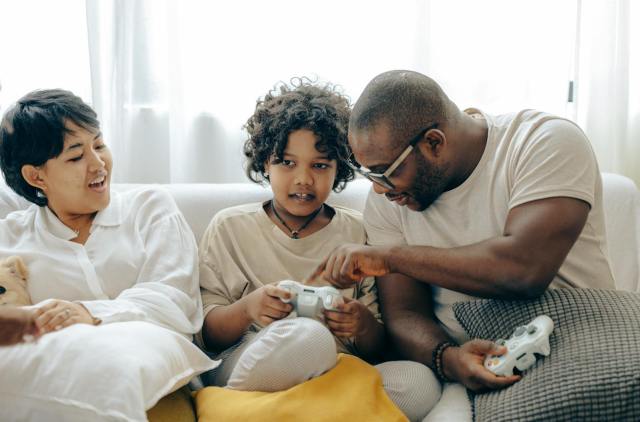
I will never forget the phone call from my son’s school regarding a fight he’d engaged in my heart dropped, a mix of anxiety and disappointment. For a 40-year-old father in 2017, an identical call delivered terrible news: his 16-year-old daughter was suspended for bullying a girl with autism. It’s the type of moment that rocks a parent, with difficult decisions regarding punishment, values, and teaching a child to learn from wrongs. This father’s tale of working through family tension and external pressures unlocks the difficulty of confronting bullying and how to begin teaching empathy. Let’s walk through his experience and the implications for parents in similar crises.

The Surprise of a School Suspension
A phone call from school can turn your day around. For this dad, it came as a punch to the gut: his daughter had been caught bullying a student with autism. I’ve experienced that combination of shock and outrage when a child you’ve raised ventures too far. “My daughter has been misbehaving a lot lately,” he explained to a local station, “but I reached my breaking point when I got a call from her school.” Bullying a vulnerable classmate isn’t just teen rebellion transgression that requires response. This incident paved the way for a challenging path of discipline and development. Reflection: Were you ever confronted with a moment when your child’s behavior shocked you?

A Shattering Admission
Faced by his daughter, the father received a rapid admission but a heart-stopping apology: “It was just a joke.” I have heard children wave poor decisions away like this, and it hurts describing cruelty as a joke indicates a lack of empathy which needs immediate correction. Her cavalier dismissal of hurting a girl with autism cut close to the bone, exposing a lack of awareness of the effect of her words. It is not merely the action but the attitude behind the action, particularly when acting against someone with special needs. This experience pressed the father to make a decisive move. Insight: A child’s alibi can unveil deeper problems to solve.

Immediate Consequences
The father’s response was swift: he took away her electronics and grounded her. I’ve done similar, yanking my kid’s phone after a bad choice it’s a parent’s instinct to set boundaries. These steps weren’t just punishment; they signaled that bullying, especially of a vulnerable peer, was unacceptable. But family dynamics complicated things. His former wife, whom he characterized as “one mean woman” who teased others’ weaknesses, dismissed it as “just a joke” and insisted on clemency. His mother similarly believed the suspension was sufficient, finding his method too extreme.

Family Tensions and Past Influences
The ex-wife’s dismissal was not unexpected, considering her background. The father noted she “always delighted in making fun of people,” once telling their young daughter another girl’s teeth were “ugly.” I’ve seen how parents’ habits shape kids my friend’s sharp tongue rubbed off on her son, who struggled with kindness. This pattern likely influenced the daughter’s behavior, normalizing mockery. The grandmother’s call for leniency added pressure, isolating the father in his resolve. Co-parenting clashes like this can muddy discipline, but he held firm, prioritizing moral growth. Reflection: How do family dynamics shape your parenting choices?

Gathering the Facts
Experts advise parents facing suspensions to start with facts. Schools must notify parents within 24 hours, detailing the incident, suspension length, and reasoning. I’ve learned to ask for written reports when my son got in trouble, the details clarified what happened. The father probably asked for this, assuring he knew the extent of the bullying. Don’t jump to conclusions: don’t think your children at fault or the school’s. Meeting with the principal, in person and alone, keeps the discussion positive and maintains the school’s power. Tip: Receive written evidence it makes your response solid.

Talking It Out
With calmness, speaking with your child is important. The father waited, then listened to his daughter tell him. Children can spin tales, but listening to them indicates that you care. I’ve sat down with my son, saying, “What happened?” and listened for his take. If stories vary, questioning witnesses clarifies. Asking more questions “Is something else bothering you?” can reveal problems such as stress or bullying they experience.For one father, learning why his daughter bullied a girl with autism was the key to his being able to fix her empathy gap.

Teaching Empathy and Accountability
Bullying a peer who has autism takes more than punishment it takes teaching empathy. I’ve taught my children to put themselves in other’s shoes, imagining their hurt, and asking, “How would you feel?” The father required his daughter to understand the hurt inflicted, particularly upon someone neurodiverse.Resources such as reading books about autism or conversations with advocates can assist children in learning to understand special struggles.Restorative practices, such as writing a genuine apology or serving at an inclusion program, move from punishment to repair.

Resolving Co-Parenting Conflicts
The father’s conflict with his ex-wife and mother identifies a shared obstacle: differing parenting styles. Her downplaying the bullying as a “joke” threatened to undermine lessons, mirroring her own cruel habits. I’ve seen co-parents butt heads, sending mixed signals to kids.A united front is ideal, but when it’s not, the consistent parent must double down.The father’s resolve to enforce consequences showed his daughter that cruelty has weight, despite others’ leniency.

Long-Term Growth
Discipline is not all about now it’s about building character. Ongoing conversations about kindness, such as talking about daily interactions, construct moral compasses. I teach my children empathy because I know they observe my behavior. The father, going against his ex-wife’s influence, needed to be an example of respect. Promoting community service such as anti-bullying initiatives gives children purpose. Schools and the community provide tools, from counselors to clubs, that help develop social skills. Tip: Engage kids in inclusive activities they learn by doing.

Constructing Inclusive Communities
This attack, which was on an autistic girl, reflects the importance of inclusive societies. Parents and schools need to impart values to children to respect differences, rather than ridicule them. I have witnessed peer mentoring programs change attitudes. The father’s strong stance was trying to inculcate this so that his daughter’s actions do not become a repeat. Joining hands with schools and community groups, parents inculcate respect and compassion, making it possible for everyone to feel safe.

A Father’s Resolve
The father’s decision to do more than the school’s suspension over family objections demonstrates parenting’s ability to shape values. His daughter’s “joke” wasn’t a joke; it hurt a fragile classmate, requiring profound change. By encouraging responsibility through consequences and empathy-building, he sought change, not only punishment. This story reminds us: parenting during crises is difficult but necessary. It’s about leading children to take ownership of their actions, respect others, and become empathetic individuals.Let’s help parents and schools create a world where empathy triumphs.




